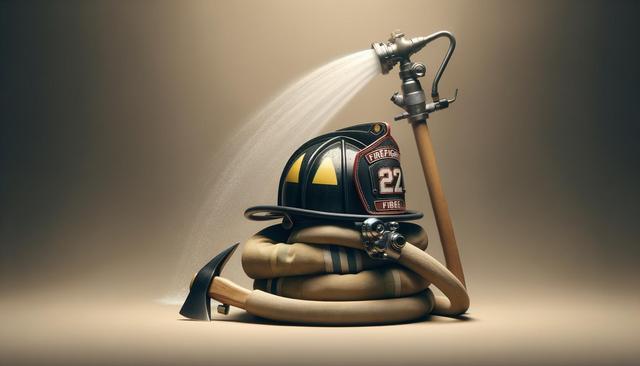The Scope of a Firefighter’s Role
Firefighters are widely recognized for their bravery in extinguishing fires, but their responsibilities extend far beyond that. As central figures in emergency response services, they are trained to handle a variety of high-pressure situations. These professionals are often first on the scene during natural disasters, vehicle accidents, hazardous material spills, and medical emergencies. Their ability to assess and act quickly can mean the difference between life and death.
In addition to responding to active emergencies, firefighters spend a significant amount of time preparing for them. Routine training drills, equipment maintenance, and physical fitness regimens are all part of their daily duties. They must stay in peak physical and mental condition to ensure they’re ready for any situation. Their role also includes educating the public about fire prevention and safety, further emphasizing their commitment to community welfare.
Training and Qualifications
Becoming a firefighter requires more than courage—it demands a rigorous training process and a solid educational foundation. Candidates typically start with EMT (Emergency Medical Technician) certification, as many calls involve medical aid. From there, they enter fire academy programs where they learn fire science, rescue operations, and hazardous materials handling.
Practical skills are honed through hands-on simulations that mimic real-world emergencies. These exercises cover:
- Search and rescue techniques
- Fire suppression strategies
- Use of breathing apparatus and protective gear
- Team coordination in crisis situations
Firefighters also undergo psychological evaluations to ensure they can cope with the mental demands of the job. Continued education is essential, with many departments offering or requiring advanced certifications in specialized areas such as high-angle rescue, wildfire management, or technical extrication.
Daily Life and Work Environment
The daily environment of a firefighter is unpredictable, which is one of the reasons the profession is both challenging and rewarding. A typical shift can involve long hours—often 24 hours on duty followed by 48 hours off. During this time, firefighters remain at the station, ready to respond at a moment’s notice. When not on a call, they engage in maintenance duties, training, and administrative tasks.
Teamwork is essential in this line of work. Firefighters live and work closely with their crew, building strong bonds that are crucial during high-stress scenarios. The firehouse often functions like a second home, with shared meals and routines that foster camaraderie. Despite the intense demands of the job, many firefighters describe the sense of purpose and teamwork as deeply fulfilling.
Community Engagement and Public Safety
Beyond emergency response, firefighters play an essential role in community engagement and public safety initiatives. They conduct fire safety workshops in schools, lead evacuation drills in workplaces, and participate in community events to build trust and awareness. These efforts are designed to reduce the number of emergencies by promoting preparedness and prevention.
Some of the key community services provided by firefighters include:
- Installing smoke detectors and carbon monoxide alarms
- Teaching fire escape planning to families
- Conducting building inspections for fire code compliance
- Offering CPR and first aid training to the public
These proactive measures demonstrate that a firefighter’s job isn’t just about responding when something goes wrong—it’s also about preventing problems before they start. Their presence is a reassuring constant in many neighborhoods, symbolizing safety and readiness.
Challenges and Rewards of the Profession
There is no denying that firefighting is a demanding career. The physical risks are significant, with exposure to extreme heat, toxic environments, and the potential for injury. Moreover, the emotional toll of witnessing traumatic events can be intense. Support systems, including peer counseling and psychological services, are vital to help firefighters cope with the mental challenges of the job.
Despite these difficulties, many find the rewards of the profession deeply meaningful. The ability to save lives, protect property, and serve the community brings a unique sense of accomplishment. Firefighters often talk about the pride they feel in their work and the lasting impact they have on the lives they touch.
Firefighting is not just a job—it’s a vocation that requires resilience, dedication, and compassion. For those who choose this path, the challenges are great, but so are the opportunities to make a real difference every single day.
Conclusion: A Career Built on Service and Commitment
For individuals considering a path in emergency response services, firefighting offers a unique blend of action, service, and personal growth. It is a career that demands much but gives back in the form of purpose, community respect, and the knowledge that one’s work truly matters. Whether responding to a house fire, aiding in a disaster, or educating a classroom of children about safety, firefighters stand as pillars of strength in their communities. Their role continues to evolve, but their commitment to saving lives and protecting the public remains unwavering.




Leave a Reply